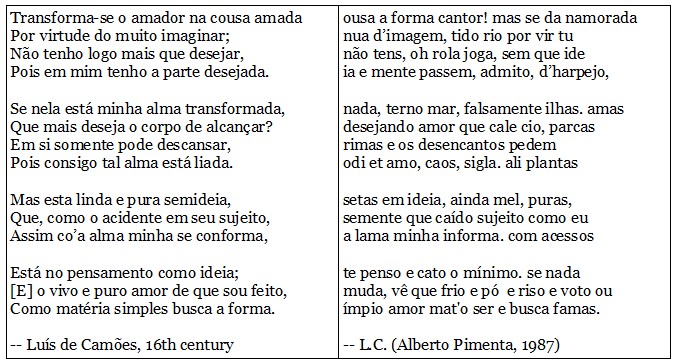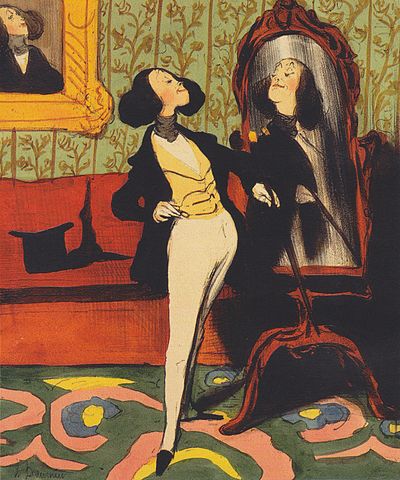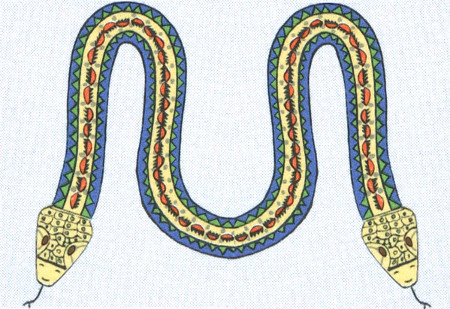
In 1936 English humorist A.P. Herbert found himself sitting in Parliament as an independent member for Oxford University. He drafted the following bill in verse to honor the new season — it’s a shame that it wasn’t enacted:
Whereas in every lawn and bed the plucky crocus lifts his head, and to and fro sweet song-birds go, the names of which we do not know:
Whereas the woods no more are dumb, the Boat Race and the Budget come, the Briton swells his manly chest, his mate, as eager, scrubs the nest, and Spring, with light but lavish hand, is spreading madness o’er the land:
It is expedient — but in rhyme — to legislate for such a time: Be it enacted, therefore, by our King with Lords and Commons in a fairy ring, assembled joyously at Westminister (or any other place that they prefer):
Provision for a Season Called Spring
1. (i) It shall be lawful everywhere for citizens to walk on air, to hang their hats upon the trees and wander hatless if they please: and notwithstanding any cracked provision in a previous Act, to give a constable a kiss is not felonious after this.
(ii) All citizens who choose to ride on taxi-tops and not inside: and those who do not use their votes because they’re busy painting boats: and any miscreant who hums, instead of doing dismal sums: whoever does a silly thing need only answer “‘Tis the Spring”: and this shall be a good defence in any court with any sense:
Provided that, in late July, this Act, of course, does not apply.
Financial Provisions
2. If any person feels he must get out of London now or bust, because the Spring is in his bones, but he must work for Mr. Jones, it shall be lawful for the same to give the Treasury his name, and say “Upon sufficient grounds I want about a hundred pounds”: and there shall not be any fuss concerning sums expended thus.
Repeal of Redundant Statutes
3. Subsection (i) of Section Four of any Act that seems a bore, and all the Acts concerning beer, and every Act that is not clear (always excepting Schedule A), shall be repealed and thrown away.
House of Commons — Reform of Procedure — Music etc.
4. (i) There shall be banks of maidenhair arranged about the Speaker’s chair: and roses white and roses red shall hang above the Speaker’s head: like some tremendous window-box, the Galleries be gay with phlox: and goldfish, lovely but aloof, shall swim above the glassy roof.
(ii) From now until the First of June all speeches shall be sung (in tune). The Speaker shall determine what hon. Members are in tune or not.
(iii) When in Committee of Supply the House may hum (but not too high). The Clerk-Assistant-at-the-Table shall choose the key (if he is able).
(iv) A band shall nearly always play (not on the first Allotted Day) behind the Speaker’s Chair at three and on the Terrace after tea.
Saving for Committees
5. On any day in May or June Committees shall adjourn quite soon: Provided, if the cuckoo call, Committees shall not sit at all.
Sittings of the Upper House
6. The House of Lords shall never sit on sunny days till after Whit: and they shall rise, if they have met, when it is foggy, fine or wet.
Termination of Official Report
7. (i) Except as hereinafter hinted, Hansard shall not again be printed, and save as in this Act is learned, all previous Hansards shall be burned.
(ii) It is a pity, history teaches, to make reports of people’s speeches, and afterwards to be unkind, simply because they change their mind. It is a most disgusting thing to make such comments in the Spring: so, as from when this Act is passed, that day’s Report shall be the last.
(iii) And as regards exceptions, see Subheading (a) of Schedule B.
Powers and Duties of Departments
8. (i) The secretary of State for Home Affairs shall now proceed to Rome, to Moscow, Washington, Cathay, or anywhere that’s far away, and not return to English skies until the Speaker certifies that Spring has ceased to be a fact under the Moss (Collection) Act.
(ii) Meanwhile o’er all his grim domain a lovely golden girl shall reign: and this delicious creature shall give golden parties in the Mall (paying the bills, if she is dunned, from the Consolidated Fund). The Civil Service, hand in hand, shall dance in masses down the Strand: and all the Cabinet shall wear wild dandelions in their hair.
(iii) It shall be deemed that every one has come into the world for fun. This shall be printed on the wall of every office in Whitehall.
Penalties for Certain Expressions
9. (i) No kind of crisis shall excuse a man exploring avenues: no lesser doom does he deserve when he is straining every nerve: and special punishment is earned by those who leave no stone unturned.
(ii) The penalty for each offence shall be elastic but immense.
(iii) A pension shall reward the man who modestly does all he can.
Interpretation
10. (i) The greatest care has been employed to make this measure null and void: not one expression in this Act means anything it means in fact.
(ii) Examples we decline to give: the lawyers, after all, must live.
Application
11. This Act applies and shall be good where anybody thinks it should:
Provided that, if strong objection should be expressed to any Section, that Section shall not have effect except for those who don’t object.
SCHEDULE B (a)
Any speech, motion, question, amendment or interruption by
A.P.H.




